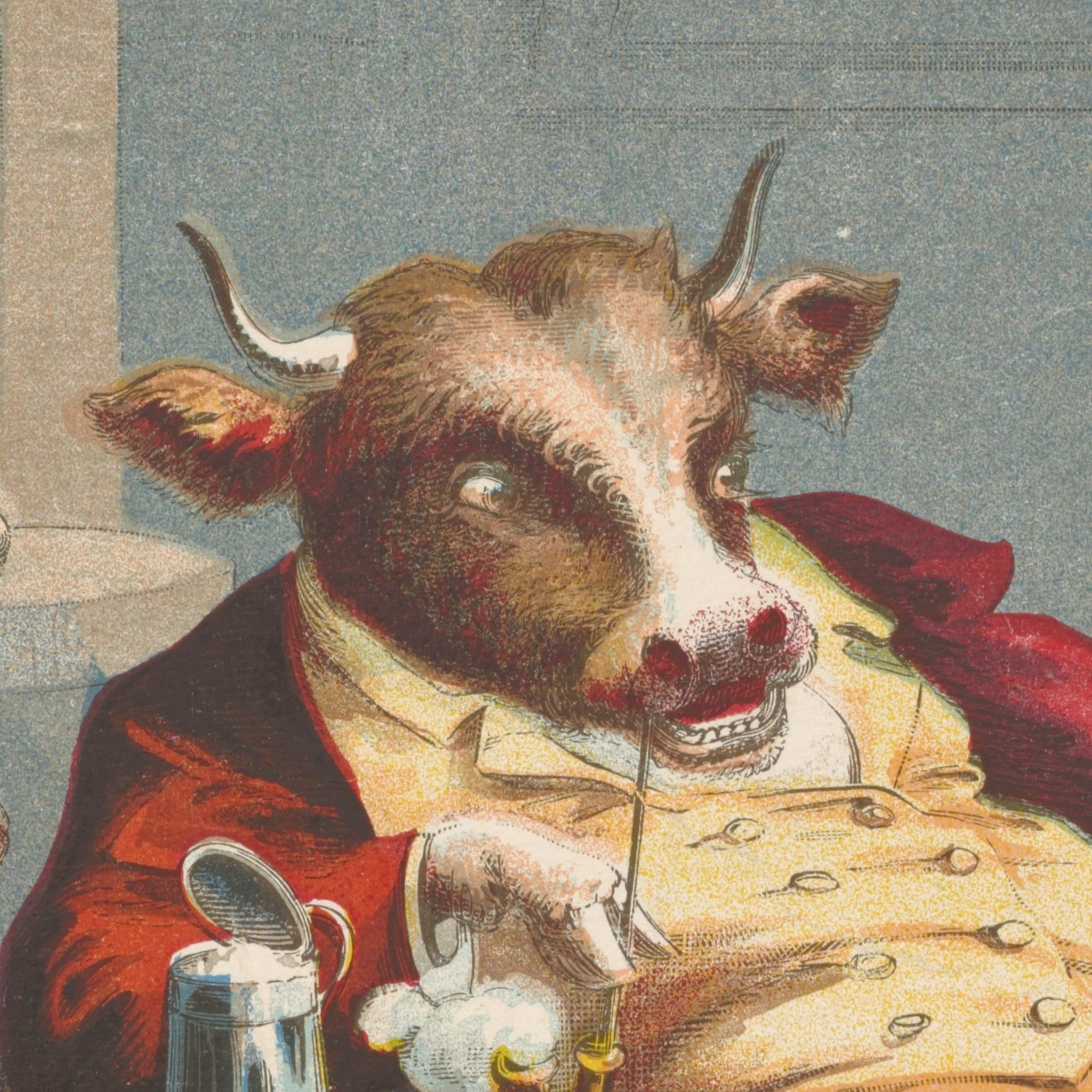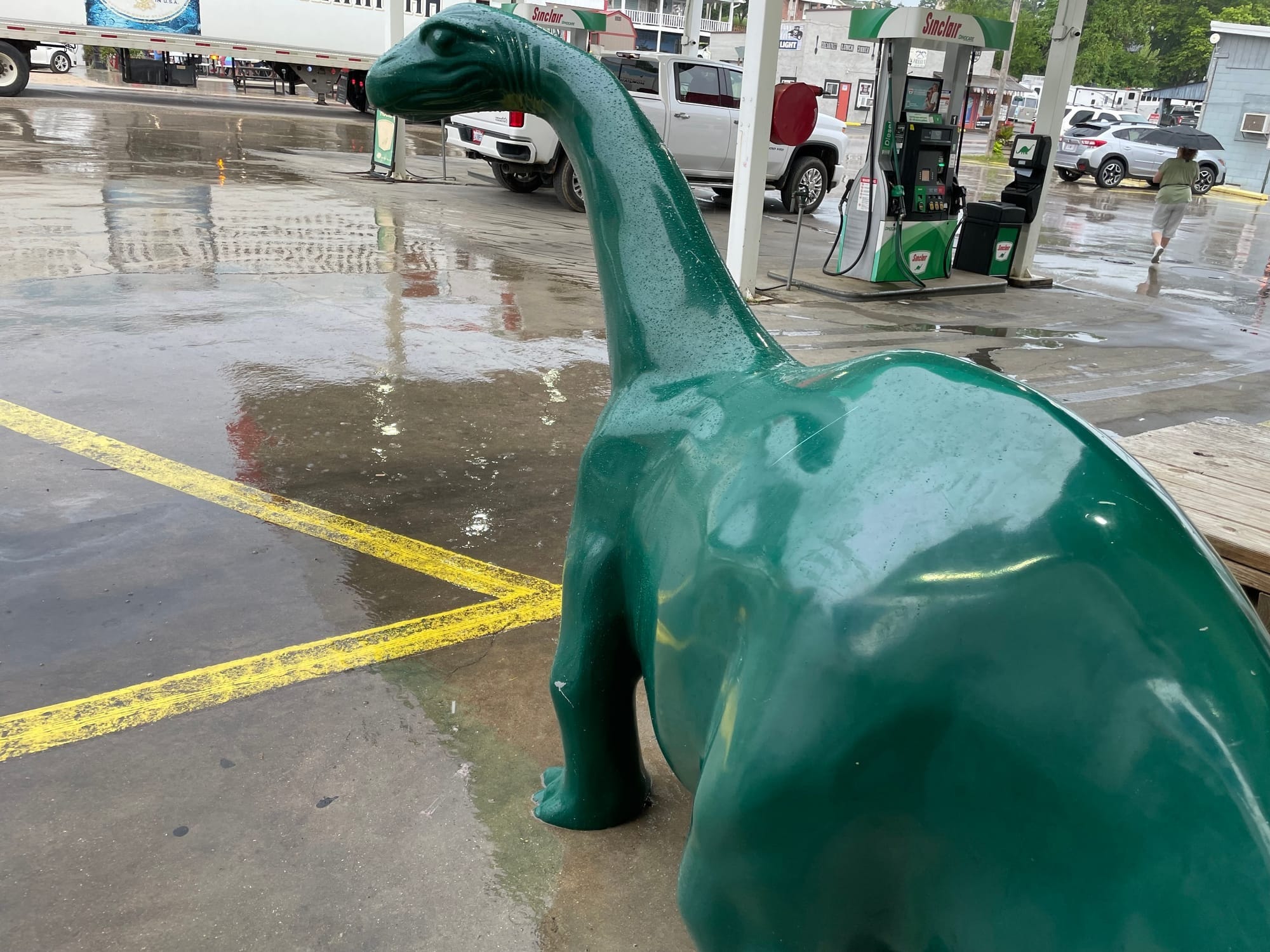Andy Beshear won re-election as Kentucky's governor a year ago by five points. That was a marked improvement over the results in 2019 when he was first elected governor by a razor-thin margin of 0.36 points over the incumbent Republican Gov. Matt Bevin.
On Nov. 5, Donald Trump carried Kentucky by more than 30 points. He won the state by similar margins in 2016 and 2020. The last Democratic presidential candidate to win the state was Bill Clinton, the former Arkansas governor, in 1992 and 1996.
So Beshear must be doing something right to win over voters in a state that also sent Mitch McConnell and Rand Paul to the Senate.
On Tuesday, a week after Election Day, Beshear wrote an opinion piece for The New York Times titled: I’m the Governor of Kentucky. Here’s How Democrats Can Win Again. I've shared the piece.
Beshear makes clear from the start that he has no intention of engaging "in the political analysis and finger-pointing" taking place on cable news and within the national Democratic Party.
"While I'm deeply disappointed with the national result, I refuse to play the blame game. ... What I offer instead is a way forward."
And then he notes that he won re-election last year at a time "when inflation and illegal border crossings were higher than they are now."
So how was it possible? Because the people of Kentucky know I care about them personally and, most important, that I am focused on what matters most in their daily lives. That’s a trust leaders must earn not only in their messaging but also in their everyday actions.
He makes the point that most Americans are not thinking about politics when they wake up. Instead, they are thinking about how to make enough money to support their families, the next doctor's appointment, how safe and congested are the roads and bridges they drive on, the public schools their kids attend, and public safety in their communities.
And then he wrote something that certainly applies to some progressive websites that we are familiar with.
Yes, there are a lot of big, important issues facing our country, but when families are struggling in these core areas, it’s hard to focus on or reach anything else. If you are staring at the cost of your child’s prescription and wondering how you are going to pay for both it and your family’s dinner, the offense of the day in Washington, D.C. or the latest crazy thing a politician said just isn’t as important.
The way forward is not complicated, but it takes work and discipline. The focus of the Democratic Party must return to creating better jobs, more affordable and accessible health care, safer roads and bridges, the best education for our children and communities where people aren’t just safer but also feel safer.
Basically he is talking about what Democrats did under Presidents Franklin D. Roosevelt (The New Deal) and Lyndon B. Johnson (The Great Society). We're talking about Social Security, Medicare, Medicaid and so many other programs that are under threat by Trump and the oligarchs behind Project 2025.
President Joe Biden and Vice President Kamala Harris enacted domestic policies along these same lines. But they had to deal with post-pandemic inflation, an immigration crisis and a closely divided Senate that delayed and thwarted the passage of Biden's more sweeping Build Back Better agenda. And quite frankly, Democrats' messaging could have been a lot better.
Beshear then wrote about some of the policies that he was able to implement in Kentucky. These included expanding Medicaid to include vision, hearing and dental coverage, capping the cost of insulin and expanding telehealth.
He also mentioned working with the private and nonprofit sectors to open a pediatric autism center in Appalachia and the first new hospital in one of the state's largest African American communities in 150 years.
He wrote:
These are tangible results, where some seniors could finally afford dentures or glasses and parents didn’t have to drive two hours or take two buses to get their child to a doctor.
The Democratic Party must show the American people that it cares about creating a better life for each and every American and re-earn the public’s trust about its focus and its direction.
But at the same time Beshear emphasized that he didn't abandon what he considers "important values and principles." He vetoed numerous anti-LGBTQ and anti-choice bills. The Republican-dominated legislature overturned nearly all his vetoes.
In March 2023, even though he was up for re-election, Beshear vetoed a bill that banned gender-affirming medical care for transgender kids and restricted which bathrooms they could use in public schools. The legislature overrode his veto.
And this was the ad that Beshear ran during the 2023 campaign when he faced the Trump-backed GOP candidate, Attorney General Daniel Cameron, who supported the state's near-total abortion ban that did not include exceptions for cases of rape or incest.
Beshear wrote in his opinion piece that he was not afraid to "talk to people like normal human beings" and explain why he vetoed anti-LGBTQ legislation. He wrote:
"For me, why is my faith, and I share it proudly. I vetoed anti-LGBTQ legislation last year because I believe all children are children of God. And whether people agree with my decision, they know ... where I am coming from."
And he concluded the piece by writing:
So while others are talking about political strategy and messaging, the way forward is really about focus and about action. The next several years are the Democratic Party’s chance to show the American people that we will not just run on but also govern by addressing those core issues that can and will improve the lives of our people. And perhaps the best part? These core issues and concerns aren’t partisan, and addressing them helps Democrats and Republicans alike. That’s a path forward for both the Democratic Party and for this country that we love.
Now it would be easy to dismiss Beshear's op-ed in The New York Times as his opening salvo for a potential 2028 presidential campaign. And people could probably sift through his record as governor and find fault.
But just look at what Beshear has been up to since Election Day. He launched an initiative called New Kentucky Home to boost tourism and economic development to a worldwide audience.
On Thursday, he held a press call with Transportation Secretary Pete Buttigieg to tout the hundreds of millions of dollars in investments brought to Kentucky by the the Bipartisan Infrastructure Law on the third anniversary of its signing.
"Projects of this magnitude simply don't happen without something like the bipartisan infrastructure law," Beshear said. "So I want to thank President Biden. I want to thank Vice President (Kamala) Harris. I want to thank the secretary for delivering this historic funding we requested."
And on Friday, he made a "major economic development" announcement about plans to build a battery manufacturing facility in Shelbyville that will create 1,572 jobs. He promoted it with this post on X, formerly Twitter, as part of his New Kentucky Home initiative.
Welcome to your #NewKyHome, Shelbyville Battery Manufacturing. pic.twitter.com/4SvZ4iL6yJ
— Governor Andy Beshear (@GovAndyBeshear) November 15, 2024
This approach appears to resonate with voters in a deep red state.
Here's a video that everyone should watch. In August, the website More Perfect Union, an advocacy journalism group dedicated to "Building power for the working class," sent reporter John Russell and filmmaker Nehemiah Stark to talk to voters in Elliott County in northeastern Kentucky.
Now this small rural county has a unique voting history because it voted for the Democratic Party's nominee in every election for 144 years. Even though the population is 99% white, Barack Obama won the majority of votes in both 2008 and 2012, although in the latter race the margin was significantly reduced.
But in the last three elections, Elliott County has voted for Trump by ever increasing margins. In 2024, Trump won the county by an 80% to 18% margin over Harris.
However, Beshear won Elliott County by a 20-point margin in 2019 and a seven-point margin in 2023.
In the video, some Elliott County residents said Trump was able to exploit the anger that people felt about being left behind.
A young man named Asher said:
"Trump wasn't getting votes from New York City, L.A. and all these big towns. He was getting votes from all these little counties across America. I think it's his anger and everyone else in the country is angry. His anger filled his campaign and it was like ,'Oh, I felt this for such a long time and someone is relating to me.'"
And Trump was able to build on that anger by instilling fear and turning immigrants into scapegoats responsible for their problems.
But at the same time, the video pointed to what might be Trump's Achilles heel: These voters don't like billionaires.
Johnda, a middle-age woman who has a farm, admitted that she felt more in common with a Mexican migrant than Trump. And she said this about billionaires:
"Good luck to them. I'm glad that they have it, but how many people did they hurt to get it and nine times out of ten they’re high in the political world and they're using government funds and what they know on the inside to make that money."
And she added this comment:
"If we keep fighting among ourselves it makes it easier for politicians to get ahold of you. If you could get the working class to stick together maybe it would make a difference. It would have to."
Russell, the More Perfect Union reporter, suggested that perhaps Democrats would fare better by going back to an old-school approach dating back to when the party "stood with the working class in small towns and big cities."
In the video, Beshear, whose father Steve Beshear served as Kentucky governor from 2007 to 2015, said that his political roots go back to FDR's New Deal.
"FDR showed up and he produced. My parents met on a WPA (Works Progress Administration) project. My parents were Democrats their entire life, and FDR was a major reason why."










Comments
We want Uncharted Blue to be a welcoming and progressive space.
Before commenting, make sure you've read our Community Guidelines.